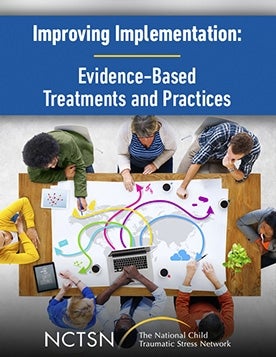
Learning Series on Implementation
Focuses on three different and critical components of effective implementation. This series provides information on the framework, readiness preparation, and sustainability as it relates to effective implementation.
The following resources on child trauma were developed by the NCTSN. To find a specific topic or resource, enter keywords in the search box, or filter by resource type, trauma type, language, or audience.

Focuses on three different and critical components of effective implementation. This series provides information on the framework, readiness preparation, and sustainability as it relates to effective implementation.
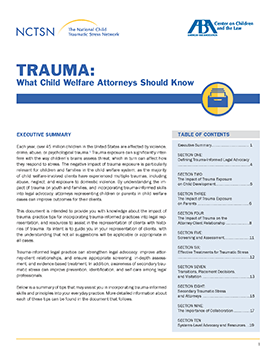
Provides child welfare attorneys with knowledge about trauma, practice tips for incorporating trauma-informed practices into legal representation, and resources to assist in the representation of clients with histories of trauma.
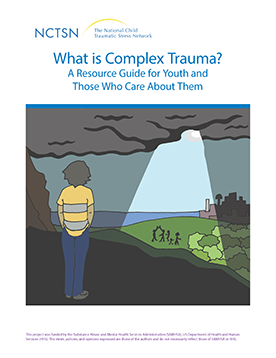
Offers information about complex trauma, how it can impact youth, both good and harmful coping strategies, and ways to improve.
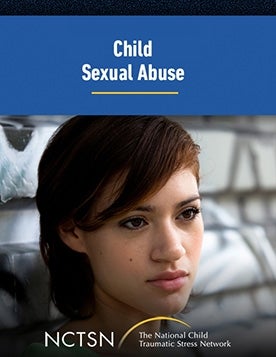
Explores the importance of knowing the difference between appropriate and inappropriate school staff behavior with students.
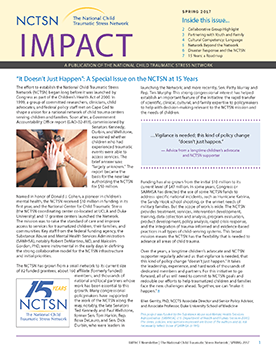
Includes an overview of the breadth of the Network’s accomplishments since its inception. Among those featured are the extensive work of the NCTSN Child Sexual Abuse Committee, the NCTSN Affiliate program, and the new Trauma-Informed Systems Collaborative Group.
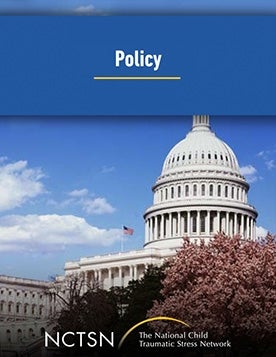
Details how NCTSN researchers and practitioners and their partners established complex trauma in children as an eligible condition for health home coverage.

Discusses how families living in racially and economically segregated communities must also cope with the effects of historical trauma and intergenerational racism.

Features the Network’s data collection initiatives that included the collection and analysis of data from over 19,000 children served by NCTSN centers.
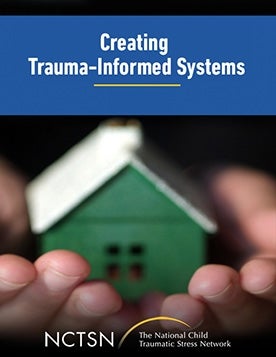
Describes how the film Removed gives foster parents a vivid picture of what it must be like for children entering the foster care system. This webinar provides information about how to use the video to facilitate a conversation about being removed from one's home.
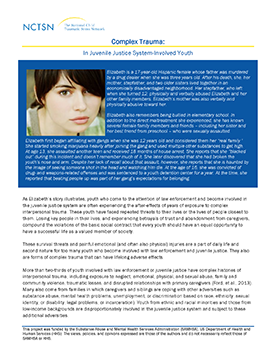
Delineates the path from complex trauma exposure to involvement in the juvenile justice system.
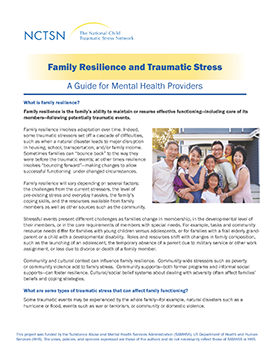
Provides information on family resilience. This fact sheet discusses a family's ability to maintain or resume effective functioning, including care of its members following potentially traumatic events.

Provides the summary results of a 2016 NCTSN member survey about financial sustainability.